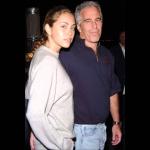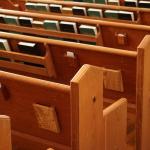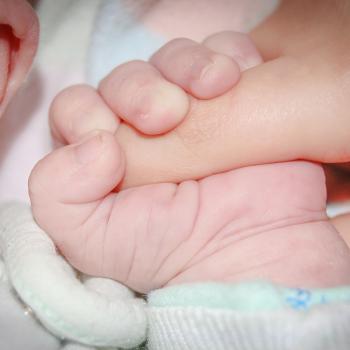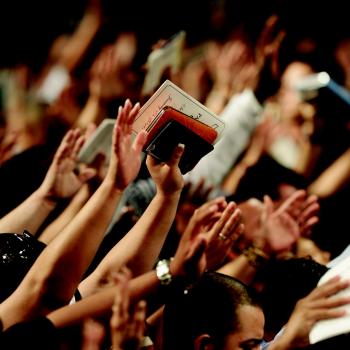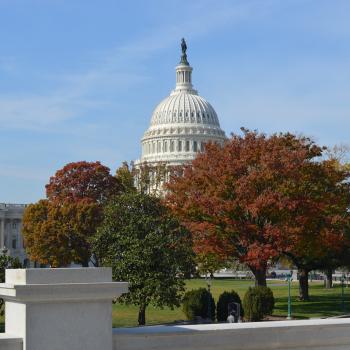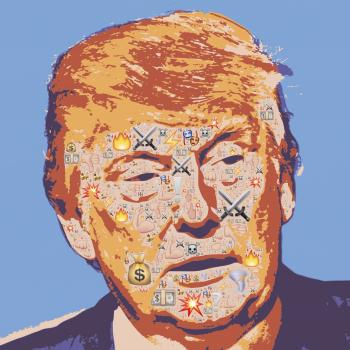His name was Otto Warmbier.
I feel the need to keep putting this out there. In fact, it currently serves as my Twitter handle.
Otto Warmbier isn’t the focus of this particular piece, however. I mention him only as a reminder of just one of the brutal atrocities that can be attributed to North Korea. I would also remind my readers – particularly any Trump-supporting Christians – that our president is still carrying on a passionate love affair with the bloodthirsty leader of the hermit nation.
Warmbier is one, but there are so many others.
I’ve often reminded my audience that by every estimate, North Korea and the Kim regime stand as the most oppressive and dangerous government for Christians in the world.
Not even Islamic nations have the same blood on their hands.
There’s a new documentary out there titled, “Humanity Denied: Religious Freedom in North Korea.” On Thursday, the film, produced by the Ethics and Religious Liberty Commission was shown at the Senate Dirksen building. It was part of the State Department’s Ministerial to Advance Religious Freedom, with a panel of experts on hand to discuss how dire the situation for Christians in North Korea is.
“The situation in North Korea is absolutely dire,” said Olivia Enos, a policy analyst in Asian studies at the Heritage Foundation, noting that credible reports consistently rank North Korea as the worst place in the world for Christians and anyone of any faith in terms of oppression and human rights violations.
The 2014 Commission of Inquiry Report by the U.N., she noted, explains that North Koreans who escaped to China yet were repatriated were asked two questions, namely, if they had any contact with South Koreans or if they interacted with any Christian missionaries. If they answered yes to either of those questions they faced severe repercussions like torture and imprisonment.
“This is emblematic of what it’s like to be a Christian inside North Korea.” she said, adding that “it’s very telling how the Kim regime conceives of religion in general.”
Enos points to history, with Christianity serving as a force in toppling other Communist regimes in the past. Because of this, the Kims, who will cling to that dictatorship at all costs, see the Christian faith as a threat that must be stopped.
Kenneth Bae, a Korean-American pastor, who was held hostage in North Korea from 2012 to 2014, was told by the North Korean government that the missions teams he had been leading into North Korea for years were a plot to overthrow the Kim regime.
And probably most powerfully, the North Korean authorities who held him told him that if one of his people came to North Korea and started an orphanage, leading just 10 children to Christ, those ten would take root, multiply, and threaten the current power structure of the nation.
That’s an astonishing statement, and we know it’s also quite true.
“They said ‘we are not afraid of nuclear weapons … we are afraid of someone like you bringing religion into our country and use it against us and then everybody will turn to God and this will become God’s country and we will fall,” Bae told the dozens gathered at the event.
Bae was informed that he was probably the most dangerous American criminal they had ever had since the Korean War. He was sentenced to 15 years of hard labor, and was then sent to a North Korean labor camp. He was ultimately released in 2014.
I’ve written before about the Christian faith of Kim Jong Un’s grandparents, who even served as missionaries.
Also of note is the fact that the North Korean capital, Pyongyang, was once called the “Jerusalem of the Far East,” due to the thriving Christian population there.
Now, what Christians remain in North Korea are either underground, fearing for their lives, or already locked away in one of the torturous labor camps within the country.
When Bae would talk about Jesus with North Koreans they would ask him if Jesus lives in Korea or China.
“North Korea is not a country where Christians are being persecuted; it is a country [where] Christianity has been eliminated, the total elimination taking place. And if you’re Christians, they’ll kill you, they’ll kill your parents.”
The official creed of the North Korean regime is called Juche, which means “self-reliance.”
The name of Jesus was erased from the North Korean public in the 1960s, as part of the Juche philosophy.
Atheism, humanism, Communism, but no Jesus and no hope.
Bae suggests that this was done in response to John 14:6.
“Jesus said to him, ‘I am the [only] Way [to God] and the [real] Truth and the [real] Life; no one comes to the Father but through Me.’ “ (AMP)
That’s far too much reliance on an omnipotent God, and not a fallible government of men.
The Korean-American pastor is the author of the 2016 memoir Not Forgotten: The True Story of My Imprisonment in North Korea. Today he leads the Nehemiah One Million Prayer Petition Campaign, an effort to mobilize intercession for the North Korean people.
During his time in the labor camp and after he got to know the prison guards he realized that despite the deep brainwashing they had endured, they were not so different from him. They just happened to have been born in North Korea.
Jesus and the Good News are the hope that cannot be allowed in an otherwise hopeless regime.
So what has to happen to end up in one of North Korea’s grueling labor camps?
“Individuals can be sent to these prison camps for something as simple as having read the Bible, having watched a South Korean drama, listened to K-pop. These are average, ordinary things that we as Americans take for granted,” she said.
No definitive estimates exist on how many people have died inside North Korean political camps but some believe the number ranges from 400,000 to many millions, Enos elaborated.
And Bae estimates there are still 25 million people in the region who have never been allowed to hear the name of Jesus.
Bae’s work involves sending aid and Bibles in bottles of rice sent down the river into North Korea and helping North Koreans escape, including those trapped in sex slavery in China.
“We need to get ready when North Korea opens up. If the North Korean regime suddenly falls, are we ready to have enough Bibles to let them know what is truth and how they can find truth?” he said.
It is a worthy effort, but one that comes with risks for both those delivering the Bibles and those receiving them.
Still, Bae believes, and has set a goal of printing and delivering 1 million Bibles, in order to put one in every household in Pyongyang. He feels that North Korea is on the verge of collapse, and when it does, having the Word of God present with the people will serve as a blueprint for rebuilding and growing a society of free and hopeful Christ followers.
Until that time, however, Christians in North Korea remain the hunted and the persecuted.

